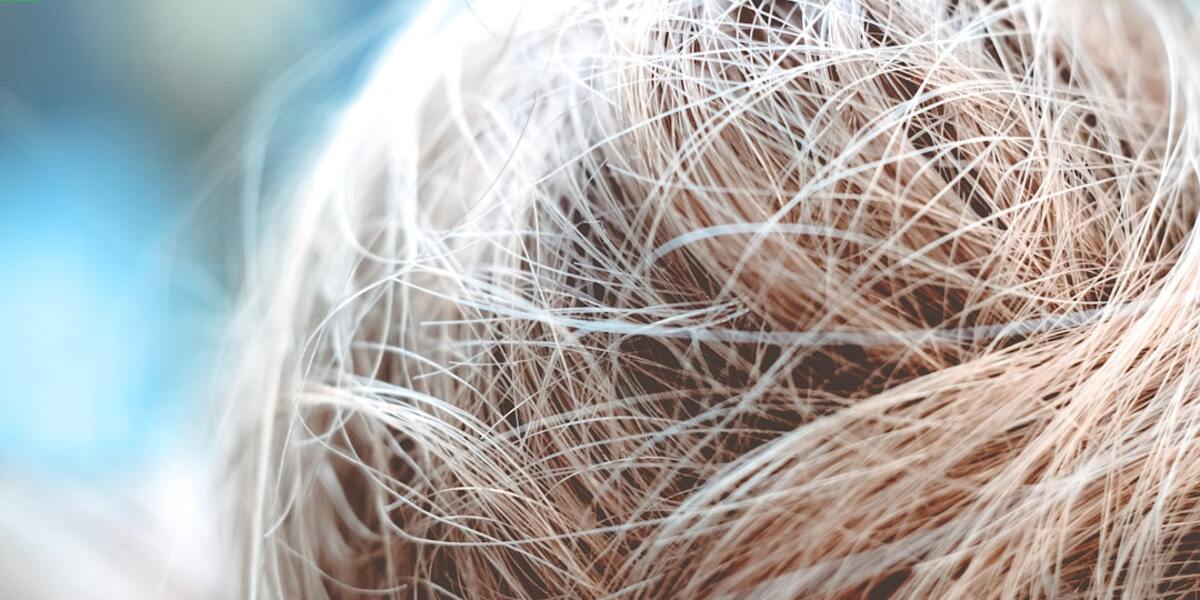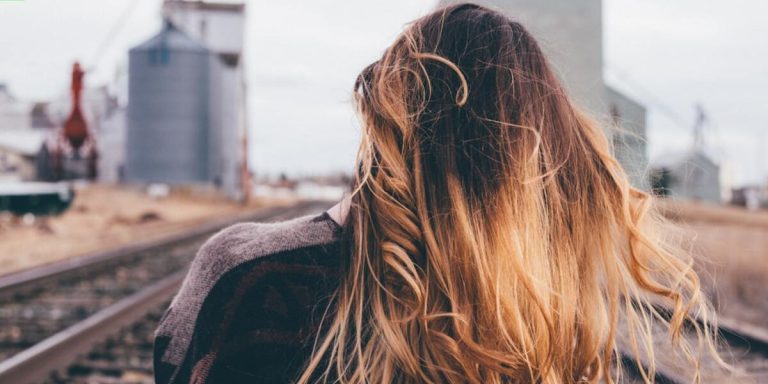Does Lack of Sleep Cause Hair Loss? Unveiling the Truth Behind This Common Question
Hair loss can be attributed to various factors, one of them being sleep deprivation. Many people often find themselves asking “does lack of sleep cause hair loss?” The answer is not as straightforward as it might seem, with several underlying processes playing a significant role.
This blog post aims to dissect this common query and clarify the relationship between poor sleeping habits and accelerated hair fall. Through an understanding of the science behind our body’s operation during rest periods, we will try to paint a clearer picture about how your night routine could possibly affect the health of your tresses.
Did you know?
Did you know chronic sleep deprivation can indeed lead to hair loss? According to a 2020 study in the International Journal of Trichology, lack of quality sleep disrupts hormone regulation – including those responsible for hair growth and repair!
Understanding the Correlation Between Sleep Deprivation and Hair Loss
Adequate sleep is a crucial element in maintaining overall body health, and the same applies to hair health. Interestingly, there’s been increasing evidence in recent years suggesting a correlation between lack of sufficient sleep or chronic sleep deprivation and escalating cases of hair loss across various demographics. This link draws from an understanding that while you’re asleep—your cells work overtime to repair damage incurred during the day, including your skin and yes, your hair.
Sleep deprivation significantly contributes to healthy hair growth by disrupting hormone regulation. Sleep helps control cortisol—the stress hormone—which, if elevated for long periods, causes inflammation that harms follicle function. Consistently high cortisol levels can:
- Act as vasoconstrictors
- Constrict capillaries that supply essential nutrients
- Lead to accelerated thinning or receding hairlines
Moreover, human Growth Hormone (HGH) production mostly happens during our deepest slumbers typically occurring early into sleeping cycles says science illustrating another downside of insomnia relating directly with this issue at hand; reduced HGH secretion results invariably stunted regrowth patches where lost hairs fail replacing themselves properly any further depleting scalp fullness over time if unchecked causing self-esteem issues impacting quality life negatively.
Examining Scientific Evidence Linking Poor Sleep to Increased Shedding
In the realm of health and wellness, sleep has always been considered a critical factor. But how does it affect hair growth? Can the fatigue from those late nights at work or restless sleep cause your tresses to shed?
Let’s delve into some scientific evidence which suggests that poor sleep can indeed result in increased shedding.
A 2013 Japanese study took an insightful dive into this subject. The researchers concluded that disruption of normal sleeping patterns could negatively impact hair follicle cycles leading to potential retardation in their growth phase. This might make ‘does lack of sleep cause hair loss’ sound like less of a speculative question and more inclined towards being factual.
Another comprehensive research published by International Journal Of Trichology pointed out stress as one significant outcome resulting from chronic insomnia – yet another keyword here connecting disturbed rest with thinning locks.
Furthermore, during deep REM (Rapid Eye Movement) Sleep phases – where most dreams occur- human cells undergo crucial repair processes including those within our scalp tissues driving up follical productivity levels! So yes…less than optimal pillow time equals lower cell rejuvenation rates hence higher chances regarding unwelcome bald patches appearing over time!
The Biological Impact of Sleep on Hair Growth Cycles
It is a well-researched fact that sleep plays an indispensable role in our overall well-being. However, one essential aspect often overlooked is the impact it has over hair growth patterns. Many wonder “does lack of sleep cause hair loss?” and here we’ll delve deep into this correlation.
Your body rejuvenates and repairs itself during your slumber hours which includes replenishing your follicles leading to healthier strands. Lack of adequate rest can interrupt these processes, resulting in potential damage or even triggering excessive shedding.
Hair grows cyclically with three stages – Anagen (growth phase), Catagen (transition phase) and Telogen (resting/shedding phase). With good quality snooze sessions each night, majority of your hairs usually remain in the Anagen stage where new cells are rapidly being produced at the root causing continuous growth.
Lifestyle Factors Aggravating Hair Thinning: Beyond Just Inadequate Sleep
Hair thinning and loss are often associated with a vast array of causes, from genetic predispositions to dietary deficiencies. However, it’s crucial not to overlook the impact our lifestyle can have on hair health. One such factor that has been garnering attention lately is sleep deprivation.
Inadequate sleep or poor quality sleep itself isn’t directly linked to causing hair loss; however, what we need to understand is how lack of proper rest affects overall body function. Sleep serves as an essential time for the body’s repair mechanisms – this includes tissue growth and regeneration in various parts of your anatomy including scalp tissues and follicles which play significant roles in maintaining healthy mane.
When you deprive yourself consistently over time from getting sufficient amounts of high-quality restorative slumber, it could lead to chronic stress situations within your system which manifests themselves through several physical symptoms – one being pronounced hair thinning or seemingly sudden onset baldness patterns showing up.
But remember: While inadequate sleeping habits might induce unwanted shifts towards thinned out locks given its systemic effects upon human physiology under chronically stressed conditions- they’re just part parameters amongst others within wider lifestyle spectrum where underlying causatives potentially lay hidden behind scenes contributing toward worsening scenarios related with alopecia issues prevalent so far amid past years count during 2023 until now!
Stress and Nutrition: How They Compound the Effects of Insufficient Rest
Understanding the correlation between stress, nutrition, and insufficient rest is essential in answering the question: does lack of sleep cause hair loss? In a fast-paced world where burnout is increasingly common, these factors often intertwine to exacerbate hair thinning issues.
Stress could be one of those silent killers when it comes to your tresses. It can create an imbalance in hormonal levels leading to adverse effects on your hair growth cycle. Types like acute or chronic stress can trigger telogen effluvium – a type of temporary hair fall wherein large amounts of follicles enter into the resting phase prematurely causing noticeable shedding.
On another front, nutrition plays its role quietly but significantly. Our bodies require certain nutrients for maintaining overall health including our scalp and locks as well! Lack from proteins, iron-rich sources may lead your body towards nutrient deficiency that affects keratin production – key component responsible for making up each strand robust and healthy!
Now let’s bring inadequate sleep into this equation! Sleep deprivation has myriad negative impacts beyond just feeling groggy throughout day – yes you guessed right; it indirectly threatens crown too by interfering with hormones regulation related with tissue growth repair such crucial aspects which are imperative ensuring strong thriving mane atop head causing potential compounding effect furthering extent damage caused due two aforementioned components (stress undernutrition).
Physical Activity Levels in Relation to Hair Health and Sleep Quality
For many, it can be surprising to learn that physical activity levels have a significant impact on hair health and sleep quality. It’s no secret that regular exercise offers numerous health benefits from improving cardiovascular strength to boosting mental wellbeing. However, its role in maintaining healthy hair might not seem so obvious.
Starting with the basics: regular workouts help improve blood circulation throughout the body, including your scalp area. This enhanced flow allows vital nutrients and oxygen reach our hair follicles efficiently – promoting healthier growth cycles while reducing breakage and falling strands.
So how does this work? Exercise naturally tires you out; using up stored energy sources which signals your brain when it’s time for some well-deserved rest once dusk approaches! Regular workouts also aid serotonin production within our brains – aptly known as ‘the happy hormone’.
Increased serotonin levels directly promote better REM (rapid eye movement) sleep ensuring more restful nights overall.
While we all love waking up refreshed after ample shut-eye; those worried about losing their precious mane should pay extra attention here because deep slumber is essentially crucial ‘repair-time’ for our tresses too!
Combatting Hair Loss Through Holistic Wellness Approaches
Holistic wellness approaches have come to the forefront, offering promising solutions when it comes to combating hair loss. A major factor commonly overlooked in this context is sleep – or more precisely, the lack thereof. So, does lack of sleep cause hair loss?
The answer is not as straightforward as a simple yes or no.
Sleep plays a crucial role in maintaining overall health and wellbeing including that of your hair. When you deplete hours from your recommended daily slumber routine consistently over time, it throws off various bodily functions contributing towards stress hormones such as cortisol going into overdrive which has direct implications on the health of your scalp and follicles.
To combat this issue through holistic wellness measures means adapting habits that promote quality restful sleep night after night- key amongst them being regular exercise; nutrition dense diet focusing on proteins vitamins & minerals essential for robust locks; meditation for better hormonal regulation justly complimented with reinforcing activities like scalp massages using essential oils known to improve blood circulation adding much-needed nourishment achieved during those deep-sleep phases.
In conclusion: Is insomnia an active accomplice accelerating our receding forehead lines? Empirical data available today strongly asserts so! However rather than stressing further about how big a toll our hectic routines are exacting upon us leaving little room for adequate shut-eye…let’s focus instead on embracing healthier lifestyle adjustments holistically designed at enhancing both – Quality Zzz’s AND luxuriant manes!
Integrative Strategies for Promoting Better Sleep and Reducing Alopecia
As we delve deeper into the intricacies of hair loss, an important yet often overlooked factor emerges: sleep. Sleep plays a critical role in maintaining overall health and wellness, including preserving the vitality and strength of our hair. The correlation between lack of adequate rest and alopecia raises the question; does lack of sleep cause hair loss?
The answer lies in understanding how our bodies function during sleep cycles. While we are asleep, our body’s cellular regeneration process kicks into high gear – repairing damaged cells utilising nutrients absorbed throughout the day.This crucial regenerative phase impacts all aspects of bodily functions significantly impacting not only your sense organs but also your skin- which includes scalp!
When this cycle is disrupted due to insufficient or poor-quality slumber, it can create stress on a hormonal level.The result? You guessed right – Cortisol levels spike! Known as ‘stress hormone’, escalated cortisol affects various biological mechanisms negatively-including survival rate for new growing strands causing premature shedding.
Understand that a lack of sleep may link to increased incidents of alopecia. To reduce or prevent further damage, it’s crucial to adopt key strategies for better rest. Achieve this by:
- Going to bed and waking up at the same time every day.
- Winding down with a bedtime routine like reading or taking a warm bath.
- Ensuring your bedroom is dark, cool, and quiet.
- Avoiding caffeine and electronics before sleep.
- Exercising regularly but not right before bedtime.
Nutritional Adjustments for Stronger, More Resilient Hair
In the quest to battle hair loss, one can’t ignore the power of nutritional adjustments. They play an indispensable role in fostering stronger and more resilient hair. A well-strategized diet brimming with essential nutrients can potentially negate different causes of hair loss.
The first cause that we’ll discuss is sleep deprivation’s impact on your tresses’ health. Although it may strike as surprising, poor sleep quality or lack thereof could indeed abet hair thinning or baldness over time. You might be wondering – does a lack of sleep cause hair loss?
The answer isn’t black and white but certainly hints towards unfavorable effects on our locks due to improper rest patterns.
Sleep enables body-wide restoration processes; significant among them are growth and repair functions—both crucial for healthy follicles—the building blocks of robust hairs. Consequentially, by compromising adequate slumber duration or getting inconsistent shut-eye hours nightly you’re implicitly starving your strands off these rejuvenating benefits leading their eventual weakening—and yes—that includes potential fallout!
Next comes dietary deficiencies–another common culprit behind unanticipated mane volume reduction episodes! An excellent place to start rectifying this issue involves incorporating protein-rich foods like fish, eggs & lean meat into meal plans regularly since proteins enforce strand strength thus preventing breakages—a frequent source strife among those battling weak-hair issues.
Conclusion
To wrap things up, the compelling connection between sleep deprivation and hair loss is impossible to ignore. If you’ve been burning the candle at both ends night after night asking ‘does lack of sleep cause hair loss?’ – it’s time to switch off that light! Adequate rest is not just something your body craves; it’s an essential component in maintaining overall health including a healthy head full of hair.
Without piling on more worry onto your already overflowing plate, consider this a gentle nudge towards changing some nocturnal habits for healthier slumbers. We invite you to explore further through our website: from understanding underlying causes behind pervasive conditions like alopecia or simply getting armed with information about proactive steps one can take regarding such issues. Remember, knowledge today could mean a lush mane tomorrow!







